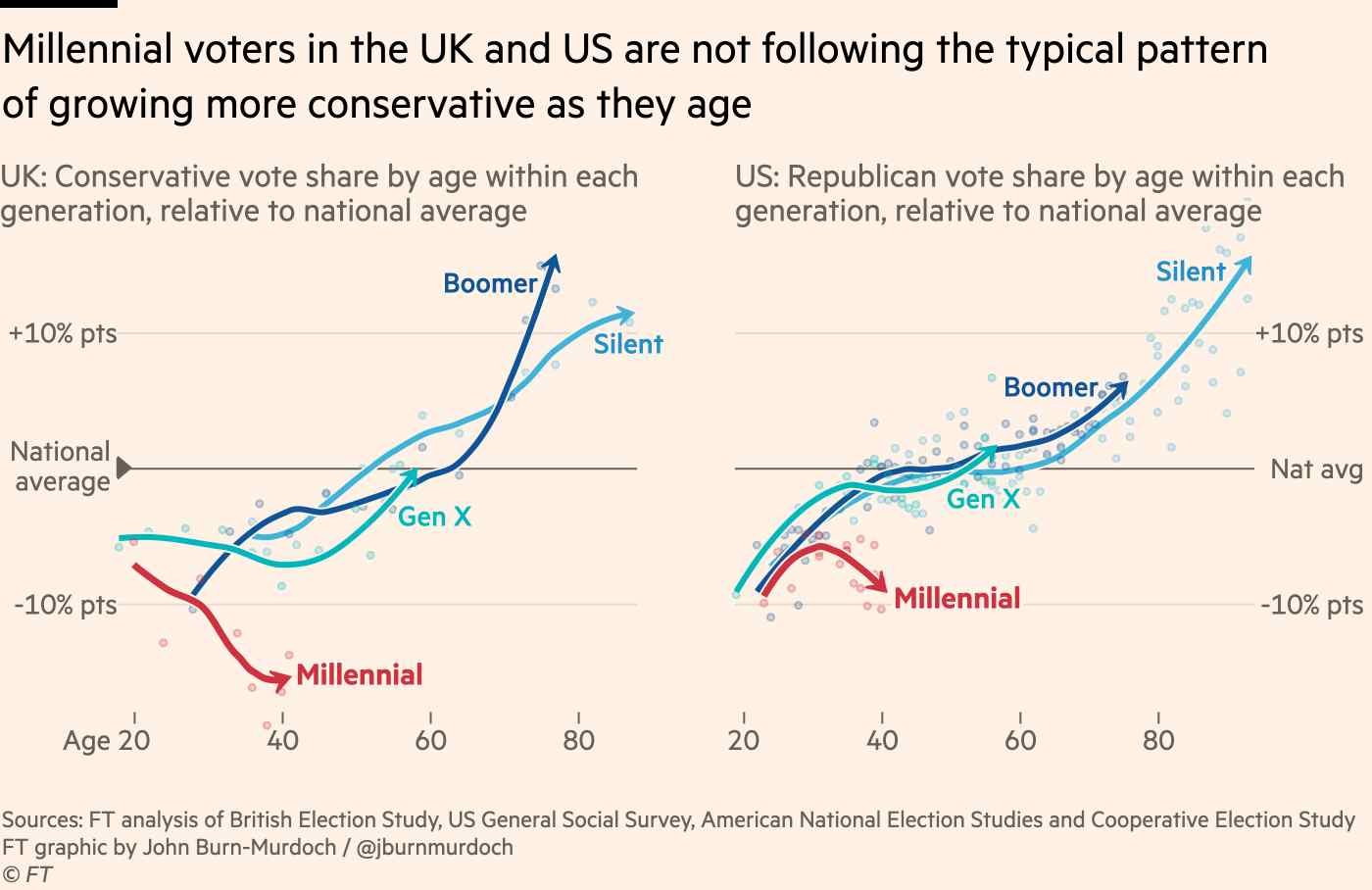The iron rule of politics - growing old means growing conservatism - seems to have been broken by the millennial generation
Photo by Quinten de Graaf on Unsplash
The cliche - some might say the iron law - of conservative attitudes increasing the older you get, seems to be shattering, according to the Financial Times. See the graph below:
The Millenials seem to be getting more radical/less conservative as they get older, compared to previous generations like Gen X, the Boomers and the “Silent Majority”, both in the UK and the US. The FT’s John-Burn Murdoch notes that millennials aren’t just being defined by “age”, but as a “cohort”, shaped by specific experiences:
So the most likely explanation is that millennials have developed different values to previous generations, shaped by experiences unique to them, and they do not feel conservatives share these.
This is borne out by US survey data showing that, having reached political maturity in the aftermath of the global financial crisis, millennials are tacking much further to the left on economics than previous generations did, favouring greater redistribution from rich to poor.
Similar patterns are evident in Britain, where millennials are more economically leftwing than Gen-Xers and boomers were at the same age, and Brexit has alienated a higher share of former Tory backers among this generation than any other.
Even before Truss, two-thirds of millennials who had backed the Conservatives before the EU referendum were no longer planning to vote for the party again, and one in four said they now strongly disliked the Tories.
The data is clear that millennials are not simply going to age into conservatism. To reverse a cohort effect, you have to do something for that cohort. Home ownership continues to prove more elusive for millennials than for earlier generations at the same age in both countries.
With houses increasingly difficult to afford, a good place to start would be to help more millennials get on to the housing ladder. Serious proposals for reforming two of the world’s most expensive childcare systems would be another.
UK millennials and their “Gen Z” younger cousins will probably cast more votes than boomers in the next general election. After years of being considered an electoral afterthought, their vote will soon be pivotal. Without drastic changes to both policy and messaging, that could consign conservative parties to an increasingly distant second place.
Something to keep an eye on at the next election… but also a hopeful sign that “alternatives” may well also be considered by the millennial generation.
Photo by Mikaala Shackelford on Unsplash



